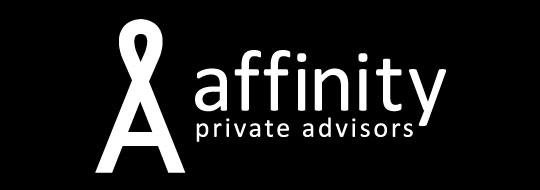
Market Update – October 2022
10/10/2022
Market Update – November 2022
22/11/2022The Federal Treasurer, the Hon Dr Jim Chalmers MP, delivered the second Federal Budget of 2022 on 25 October 2022.
The Albanese Government did not make any changes to the stage three tax cuts, however, announced some significant and wide ranging proposals.
This summary provides coverage of the key issues of most interest to you.
Personal income tax
Digital Currency – clarifying that digital currencies are not taxed as foreign currency
The Government will introduce legislation to clarify that digital currencies (such as Bitcoin) continue to be excluded from the Australian income tax treatment of foreign currency. This maintains the current tax treatment of digital currencies, including the capital gains tax treatment where they are held as an investment. This measure removes uncertainty following the decision of the Government of El Salvador to adopt Bitcoin as legal tender and will be backdated to income years that include 1 July 2021.
The exclusion does not apply to digital currencies issued by, or under the authority of, a government agency, which continue to be taxed as foreign currency.
Business owners
Depreciation – reverse taxpayers to self-assess the effective life of intangible depreciating assets
The Government will not proceed with the measure to allow taxpayers to self-assess the effective life of intangible depreciating assets, announced in the 2021-22 Budget.
Reversing this decision will maintain the status quo – effective lives of intangible depreciating assets will continue to be set by statute. This will avoid the potential integrity concerns with the previously announced measure and contribute to budget repair.
Powering Australia – Electric Car Discount (previously announced)
The Government will cut taxes on electric cars so that more Australians are able to afford them.
From 1 July 2022, the measure will exempt battery, hydrogen fuel cell and plug-in hybrid electric cars from fringe benefits tax and import tariffs if they have a first retail price below the luxury car tax threshold for fuel-efficient cars ($84,916 in 2022‑23). The car must not have been held or used before 1 July 2022.
Employers will need to include exempt electric car fringe benefits in an employee’s reportable fringe benefits amount.
Improving the integrity of off-market share buy-backs
The Government will improve the integrity of the tax system by aligning the tax treatment of off-market share buy-backs undertaken by listed public companies with the treatment of on-market share buy-backs. This measure will apply from announcement on Budget night (25 October 2022).
Superannuation
Superannuation – expanding eligibility for downsizer contributions (previously announced)
The Government will allow more people to make downsizer contributions to their superannuation, by reducing the minimum eligibility age from 60 to 55 years of age. The measure will have effect from the start of the first quarter after Royal Assent of the enabling legislation. This was a pre-election announcement.
The downsizer contribution allows people to make a one-off post-tax contribution to their superannuation of up to $300,000 per person from the proceeds of selling their home. Both members of a couple can contribute and contributions do not count towards non-concessional contribution caps.
Social security
Plan for Cheaper Child Care
The Government will provide $4.7 billion over 4 years from 2022–23 (and $1.7 billion per year ongoing) to deliver cheaper child care, easing the cost of living for families and reducing barriers to greater workforce participation. This includes $4.6 billion over 4 years from 2022–23 to:
- increase the maximum Child Care Subsidy (CCS) rate from 85 per cent to 90 per cent for families for the first child in care and increase the CCS rate for all families earning less than $530,000 in household income
- maintain current higher CCS rates for families with multiple children aged 5 or under in child care, with higher CCS rates to cease 26 weeks after the older child’s last session of care, or when the child turns 6 years old
- improve the transparency of the child care sector by requiring large providers to publicly report CCS-related revenue and profits.
Boosting Parental Leave to Enhance Economic Security, Support and Flexibility for Australia’s Families
The Government will introduce reforms from 1 July 2023 to make the Paid Parental Leave Scheme flexible for families so that either parent is able to claim the payment and both birth parents and non-birth parents are allowed to receive the payment if they meet the eligibility criteria. Parents will also be able to claim weeks of the payment concurrently so they can take leave at the same time.
Both parents will be able to share the leave entitlement, with a proportion maintained on a “use it or lose it” basis, to encourage and facilitate both parents to access the scheme and to share the caring responsibilities more equally. Sole parents will be able to access the full 26 weeks.
Lifting the Income Threshold for the Commonwealth Seniors Health Card
The Government will increase the income threshold for the Commonwealth Seniors Health Card from $61,284 to $90,000 for singles and from $98,054 to $144,000 (combined) for couples.
Other
Philanthropy – updates to specifically listed deductible gift recipients
The Government will amend the tax law to specifically list Australians for Indigenous Constitutional Recognition as a deductible gift recipient (DGR) for donations made from 1 July 2022 to 30 June 2025.
The Government will also extend the listing of Australian Women Donors Network as a DGR for 5 years, for gifts made from 9 March 2023 to 8 March 2028.
Taxpayers may claim an income tax deduction for donations of $2 or more to DGRs.
New cyber security measures
The October 2022-23 Budget will provide $31.3 million in additional funding in 2022-23, providing cyber security services to agencies with fewer resources as part of its whole-of-Government Cyber Hub program uplift package.
Reference – Macquarie, Federal Budget October 2022: For Individuals
The information, opinions, estimates and forecasts contained are current at the time of this document and are subject to change without prior notification. This information is not considered a recommendation to purchase, sell or hold any financial product. The information in this document does not take account of your objectives, financial situation or needs. Before acting on this information recipients should consider whether it is appropriate to their situation. We recommend obtaining personal financial, legal and taxation advice before making any financial investment decision. To the extent permitted by law, Affinity Private Advisors does not accept responsibility for errors or misstatements of any nature, irrespective of how these may arise, nor will it be liable for any loss or damage suffered as a result of any reliance on the information included in this document. Past performance is not a reliable indicator of future performance.
This report is based on information obtained from sources believed to be reliable, we do not make any representation or warranty that it is accurate, complete or up to date. Any opinions contained herein are reasonably held at the time of completion and are subject to change without notice.
.


